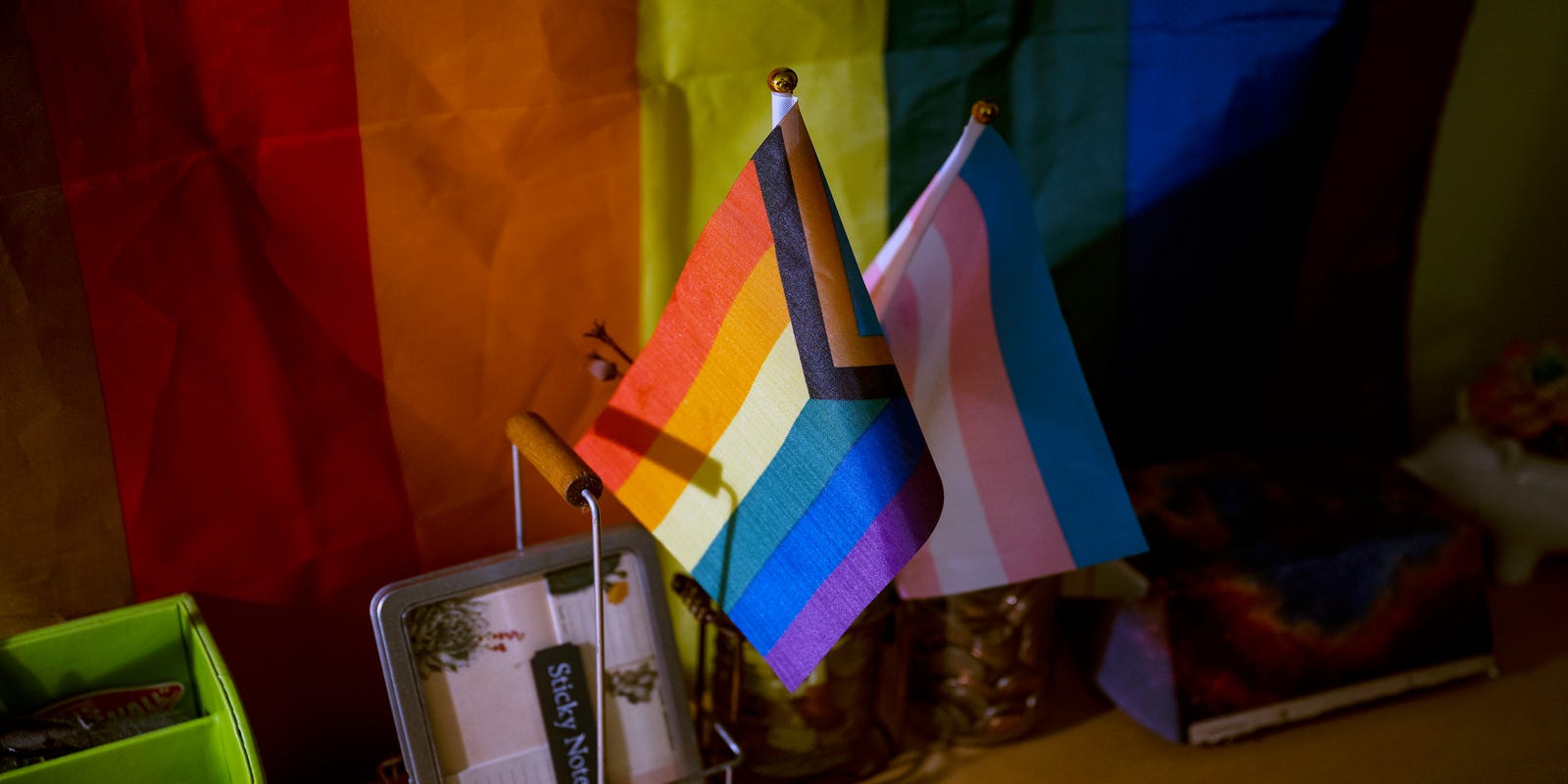
As more local school districts consider banning the LGBTQ pride flag on school campuses, Tennessee could become the first state to adopt a statewide ban of political flags ― including rainbow pride flags, pride progress flags, and transgender rights flags ― in publicly funded schools.
As written, House Bill 1605, would prohibit public and charter schools from displaying any flag other than the U.S. or Tennessee flags in schools.
“A school should be a place where a child goes to learn, not a place where a child goes to be indoctrinated,” bill sponsor Rep. Gino Bulso, R-Brentwood, told The Tennessean in an interview. “We’re simply trying to remove political statements that either educators, administrators, or others want to make in a school setting so that the school can focus on educating the child, and not getting involved in these kinds of political issues.”

Bulso said he was encouraged to file the bill by Williamson County parents and a school board member, who were concerned about political flags, including the LGBTQ pride flag and transgender rights flag, displayed in public schools there.
“I’ve heard the same types of issues from legislators in other counties,” Bulso said.
Separately, Bulso has represented a group of parents suing the Williamson County School Board seeking to remove five books from school libraries under the state’s new Age Appropriate Materials law.
He plans to add a list of exceptions to allow teachers to display national flags as part of a curriculum or for educational purposes, and add an enforcement mechanism (not currently in the bill) during the legislature’s committee process.
“It’s kind of early in the process, I think, to have a firm idea of what the final legislation will look like. Obviously, if you’ve got flags of other countries or other geographic areas that are used for pedagogical purposes, those are perfectly fine,” Bulso said. “When we put together a list of exceptions that would go into the bill, it would include anything that obviously was part of the education process.”
Bulso said the bill is primarily aimed at preventing “authority figures from injecting into the classroom these political statements” — and is not intended to punish students who display pride flags on their backpacks, for example.

State law already requires all public schools to display the U.S. flag.
What flags could be impacted?
As written, the bill would prohibit display of any flag other than the U.S. and Tennessee state flag. Even with exceptions for educational uses, the proposed ban could still have far-reaching impact.
The first rainbow LGBTQ pride flag, first flown in San Francisco, was designed by artist Gilbert Baker in 1978 as a symbol of pride for the gay community. Over the last 40 years, it has become a symbol of LGBTQ pride and liberation around the world.

The transgender pride flag was designed in 1999 by trans activist Monica Helms. It features pink and blue stripes, colors that have traditionally been associated with girls and boys, and a white stripe to represent people who are intersex or transitioning.
Many other political and cultural flags could be impacted by Bulso’s proposal, including the Thin Blue Line flag (a sign of support for law enforcement), the Black Lives Matter flag (a symbol of protest at racial injustice), the Gadsden Flag (representing for many conservatives the rejection of government interference with personal liberties), the POW/MIA flag (a remembrance of missing and captive U.S. service members).
Where else are pride flags banned?
Nationwide, more than 40 local bans of the pride flag, concentrating in California, Wisconsin and the New England region, according to the Gilbert Baker Foundation.
The Monongalia County Board of Education in West Virginia banned rainbow flags from all district schools, saying the flag represented a political statement. Miami-Dade County in Florida is considering a ban on all flags except the U.S. flag and the state seal of Florida. Most recently, two California school districts banned the display of LGBTQ pride flags, citing political controversy around them.
No local bans have been implemented in Tennessee.
In response to the bans, the National Education Association (the nation’s largest teacher’s union) has advocated that school boards explicitly permit pride flags to be displayed inside schools as symbols of diversity, equity and inclusion – not as political statements.
Would this hold up in court?
If passed by the legislature, Bulso’s bill could face a legal challenge. No state has yet implemented a universal ban of political flags in schools. The U.S. Supreme Court has repeatedly ruled that teachers and students’ do not “shed their constitutional rights to freedom of speech or expression at the schoolhouse gate.”
“Obviously there’s a balance there,” Bulso said. “But the purpose of the school is to educate the child. It’s not a place for people to go and make statements that are protected by the First Amendment.”
The ACLU considers municipal policies that have banned only the pride flag “viewpoint discrimination” under the First Amendment. So far, no lawsuit challenging the constitutionality of pride flag bans has reached the U.S. Supreme Court.
“The Rainbow Flag has been used to support LGBTQ+ students and instill a sense of community. Removing the LGBTQ+ Rainbow Flag sends a message to students, allies, and faculty that this community is not to be celebrated or protected,” Li Nowlin-Sohl, a senior attorney for the ACLU’s LGBTQ & HIV Project wrote in an open letter to communities considering such bans. “Such a message fosters an unsafe environment for many students.”
Vivian Jones covers state politics and government for The Tennessean. Reach her at[email protected].



